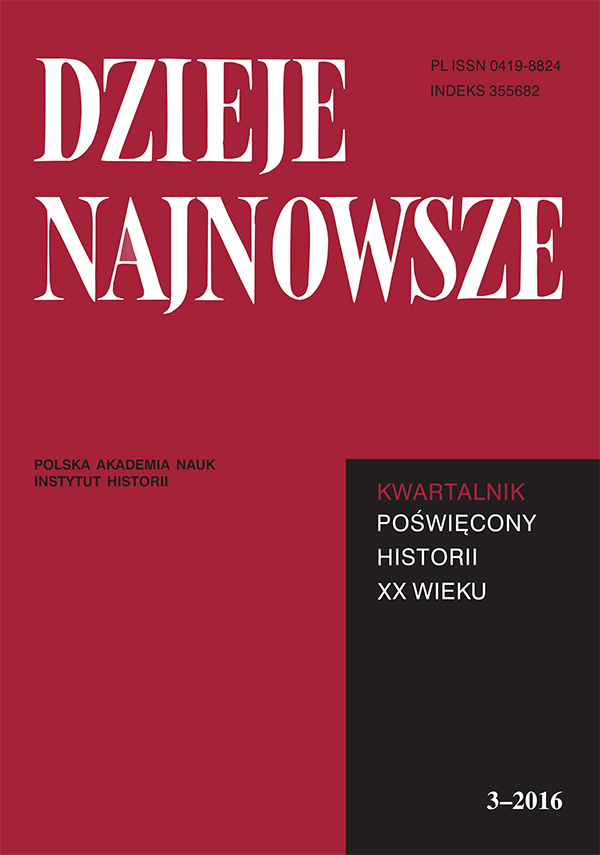Dezercje i unikanie służby w Wojsku Polskim w latach 1918–1939
Desertion and Avoidance of Military Service in the Polish Army in 1918–1939
Author(s): Remigiusz KasprzyckiSubject(s): History, Military history, Social history, Recent History (1900 till today), Interwar Period (1920 - 1939)
Published by: Instytut Historii im. Tadeusza Manteuffla Polskiej Akademii Nauk
Keywords: desertion; Polish Army in the Second Polish Republic; Second Polish Republic; society towards the army; army;
Summary/Abstract: Desertions were the most serious issues in Polish military service in 1918–1939. They resulted from multiple sources. Most frequent causes were either strained national relations, violence experienced from superiors or colleagues, military service labor or personal reasons. Polish, Jewish, Ukrainian or German deserters were escaping mainly to Germany and Soviet Union. Polish deserters were often valuable source of information for military intelligence of adjacent countries. Polish Army tried to fight against the desertions by taking several actions: military journalism described desertion legal consequences as well as misfortunes of fugitives abroad, library resources were carefully verified in all the military units, newspapers were cautiously checked and above all military regiments were monitored in order to avoid presence of any communist leaflets. Deserters escaping to Poland were coming mainly from Romania and Soviet Union. Military service avoidance was another problem. It referred not only to recruits but also reservists called for military maneuvers. In both cases deserters received help from gangs operating in Eastern Poland in twenties. People called for military service as well as deserters paid for being brought to Germany and then to Latin America. What’s interesting, a large number of reservists called for military service were officers, who frequently acted as doctors.
Journal: Dzieje Najnowsze
- Issue Year: 48/2016
- Issue No: 3
- Page Range: 87-105
- Page Count: 20
- Language: Polish

